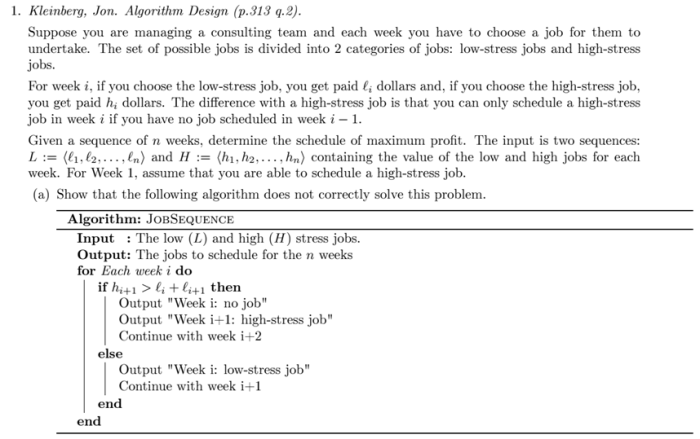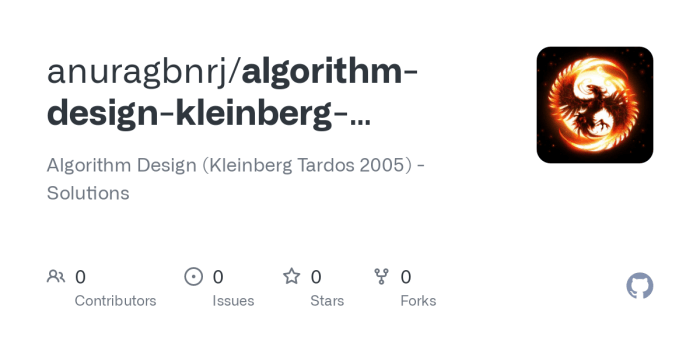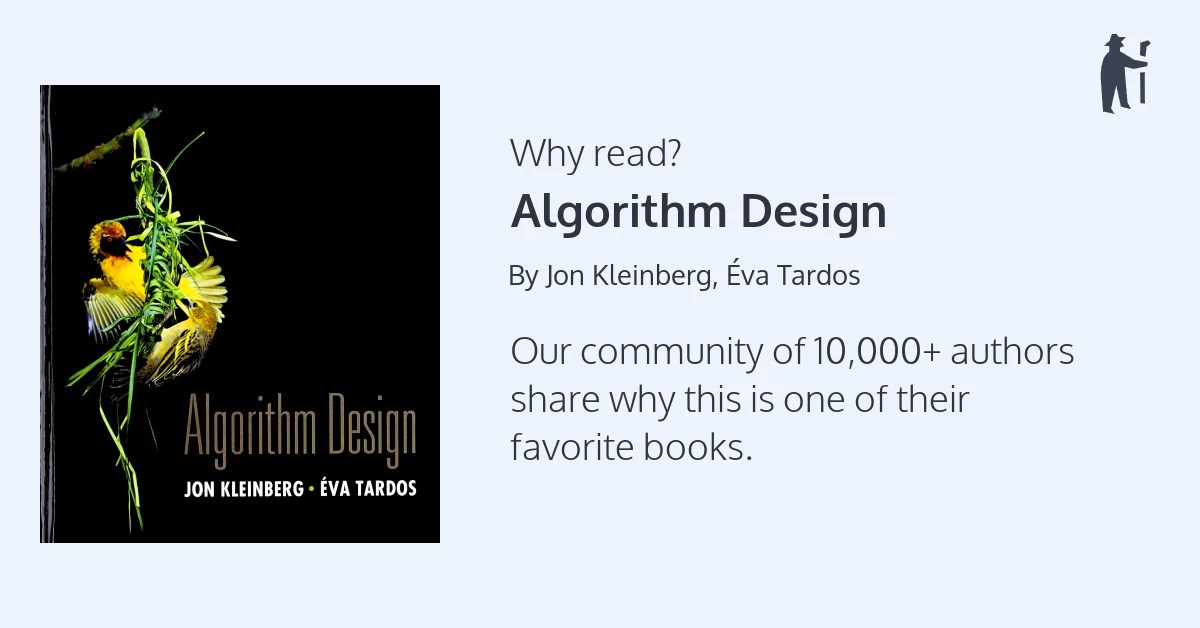Jon kleinberg algorithm design solutions – Jon Kleinberg’s algorithm design solutions have revolutionized the field of algorithm design, impacting network analysis, data mining, and machine learning. His emphasis on efficiency, scalability, and the balance between theoretical foundations and practical considerations has led to groundbreaking algorithms with real-world applications.
This article explores the significance of Kleinberg’s contributions, the key concepts underlying his algorithm design, and the diverse applications of his algorithms. It also examines his theoretical contributions to graph theory, network science, and combinatorial optimization.
1. Introduction to Jon Kleinberg’s Algorithm Design Solutions

Jon Kleinberg is a renowned computer scientist known for his groundbreaking contributions to algorithm design, network analysis, and data mining. His work has revolutionized the field of algorithms and had a profound impact on diverse areas, including web search, social network analysis, and recommendation systems.
Kleinberg’s emphasis on efficiency, scalability, and practical applications has led to the development of algorithms that are widely used in industry and academia. His ability to bridge the gap between theoretical foundations and real-world challenges has made his work invaluable to both researchers and practitioners.
2. Key Concepts in Kleinberg’s Algorithm Design

Efficiency and Scalability
Kleinberg’s algorithms are known for their efficiency and scalability, making them suitable for processing large datasets and solving complex problems in real-time. He has developed techniques to optimize algorithms for practical applications, ensuring that they can handle large volumes of data without compromising performance.
Balancing Theory and Practice, Jon kleinberg algorithm design solutions
Kleinberg’s approach to algorithm design strikes a balance between theoretical foundations and practical considerations. He believes that algorithms should not only be theoretically sound but also effective in solving real-world problems. His work often involves adapting theoretical concepts to practical applications, leading to algorithms that are both efficient and robust.
3. Applications of Kleinberg’s Algorithms

Social Network Analysis
Kleinberg’s algorithms have played a significant role in social network analysis, enabling researchers and practitioners to understand the structure and dynamics of social networks. His work on clustering and partitioning algorithms has helped identify communities and influential individuals within networks.
Web Search
Kleinberg’s algorithms have been instrumental in improving the efficiency and accuracy of web search engines. His work on the HITS algorithm, which measures the authority and hub scores of web pages, has significantly improved the relevance of search results.
Recommendation Systems
Kleinberg’s algorithms have also been applied to recommendation systems, which provide personalized recommendations to users. His work on collaborative filtering algorithms has enabled the development of systems that can recommend items based on the preferences of similar users.
| Algorithm | Application | Impact |
|---|---|---|
| HITS | Web search | Improved relevance of search results |
| Collaborative filtering | Recommendation systems | Personalized recommendations |
| Clustering | Social network analysis | Identification of communities and influential individuals |
4. Kleinberg’s Contributions to Theoretical Computer Science

Graph Theory and Network Science
Kleinberg has made significant contributions to graph theory and network science. His work on clustering algorithms has provided new insights into the structure and properties of graphs. He has also developed algorithms for partitioning graphs into communities, which has applications in social network analysis and other fields.
Combinatorial Optimization
Kleinberg’s work in combinatorial optimization has led to the development of efficient algorithms for solving complex optimization problems. His algorithms have been used to solve problems in areas such as scheduling, routing, and resource allocation.
5. Case Studies and Examples
- Google PageRank:Kleinberg’s HITS algorithm formed the basis for Google’s PageRank algorithm, which revolutionized web search by ranking web pages based on their authority and relevance.
- Netflix Recommendation System:Kleinberg’s collaborative filtering algorithms are used in Netflix’s recommendation system, providing personalized movie and TV show recommendations to users.
- Amazon Product Recommendations:Kleinberg’s algorithms are also used in Amazon’s product recommendation system, which suggests products to customers based on their past purchases and browsing history.
Expert Answers: Jon Kleinberg Algorithm Design Solutions
What are the key concepts in Kleinberg’s algorithm design?
Kleinberg emphasizes efficiency, scalability, and the balance between theoretical foundations and practical considerations in algorithm design.
What are some applications of Kleinberg’s algorithms?
Kleinberg’s algorithms have found applications in social network analysis, web search, recommendation systems, and other areas.
What are Kleinberg’s theoretical contributions to computer science?
Kleinberg has made significant contributions to graph theory, network science, and combinatorial optimization.